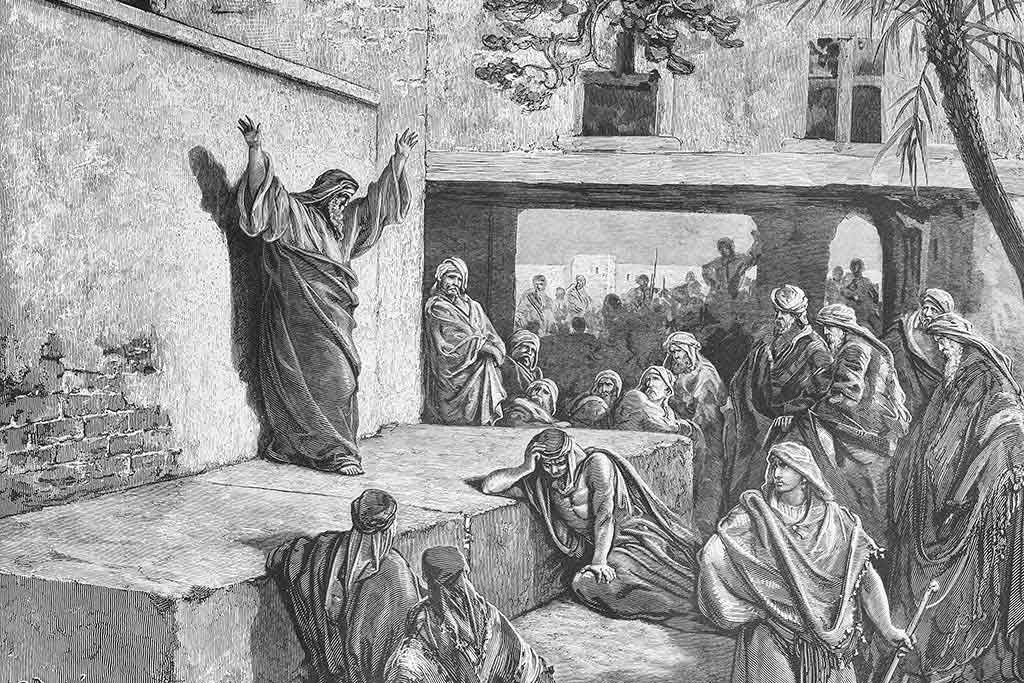
What We Can Learn from the Period of the Judges
Every person faces the daily decision of whether to choose God’s way or their own way. We are pressured to conform to the world and to the culture around us instead of submitting to God as our king. We are told to look out for our own self-interests instead of loving our neighbor as ourselves. These choices are as important today as they were in the days of the judges.
The book of Judges is characterized by the people of Israel doing as they saw fit – that is, they did what was right in their own eyes. When people do what is right in their own eyes, they tend not to do what is right in God’s eyes. Left to themselves, people do what is evil in the sight of the Lord. The Israelites continually chose the ways of the nations around them over the ways of God. Instead of being a kingdom of priests and a holy nation devoted to God, they chose to be like the other nations, worshiping false gods. Instead of obeying God’s good words to them, they transgressed their covenant relationship with God.
The events of the book took place after the initial efforts of the conquest of the land of Canaan. In Joshua, the book preceding Judges, we see God’s fulfillment of his covenant promises to Abraham in bringing Israel into the land (Joshua 21:45; 22:4; 23:14–15).
Judges then describes the unfaithfulness of God’s people to the covenant relationship.
The nation of Israel was fractured after the death of Joshua, and no judge ruled over the people. The tribes of Israel lacked strong central leadership, so they identified more with their individual tribe than with the entire nation. Because of this, there was constant infighting between the tribes, and they struggled to rally together against the nations whose land they were called by God to conquer (compare Deuteronomy 7; 20). It is one of the darkest times in Israel’s history and shows the sinfulness of humanity in a stunning display of depravity. Today is not so different.
Judges is possibly written sometime within the reign of either David or Solomon. The introduction (1:1—3:6) first shows Judah’s largely successful accomplishments in the conquest and compares the successes of Judah with the failures of the other tribes. It also reveals a repeated cycle. The cycle looks like this: the people do evil in the sight of God; God sends a foreign power to oppress them; the people cry out; God sends a judge who delivers them; the land has rest. Then the cycle repeats.
The body of Judges (3:7—16:31) contains the stories of the judges. Throughout the course of the book, the tenor of the narratives darkens. It starts on a high note with a leader from Judah who is successful in his campaign against oppression, but the last judge, Samson, a judge from Dan, looks more like a leader of the nations around Israel than a leader of Israel. As the book progresses, the judges do less and less, and by the end the book, the judges are not even rescuing Israel. In fact, at times the Israelites are even oppressing each other! Throughout the narratives of the major judges, elements of the sin-redemption cycle begin to disappear so that there is a sense of a breaking pattern as Israel spirals into chaos. The conclusion sums up the book by showing how everyone did as they saw fit (chapters 17–21).
Here are five key things we can learn from this period in history —
1. Judges helps us to know God.
God is jealous for his people and does not want them to worship other gods. God was faithful to the covenant relationship, even when the people of Israel were not faithful. God is also patient with his people. The Israelites often acted like children who make the same mistakes over and over again, even when they are given clear instructions on the right way to act. Yet God is also holy and just. He does not allow sin to go unpunished.
2. While the judges were flawed individuals, they were also people of God who operated with great faith.
God uses flawed individuals to do great things that can only be accomplished by the power of the Spirit and through the grace of God.
3. The book instructs God’s people in what is acceptable to God.
The nature of narrative is that it shows the good, the bad, and everything in between. And just because something is related in the narrative does not mean it is something acceptable to God. The narrative structure of the sin-redemption cycle instructs readers as to what is acceptable and unacceptable to God.
4. Judges reveals who people are when they are left to their own devices.
The entire book starkly warns against the sin of idolatry and shows that humans can flourish only through a true and right worship of God alone.
5. The book looks forward to the coming of a righteous king who will lead God’s people in proper worship of him.
This king was not David or Solomon or any other human king. This king was Jesus Christ. While all of these five lessons are important to Christians today, this last one resonates particularly strongly as we await the return of our great king. In the meantime, we are called to love God by being faithful to him and preparing ourselves for Christ’s return.
The book of Judges is about people who lived in another time and place but who experienced opposition to a life dedicated to following God. Nations surrounding Israel were pressuring them to compromise and become like them. Christians today find themselves in the same climate as ancient Israel did—the world is pressuring us to conform to its ways. God, however, is calling us to remain faithful. In order to do this, we need David’s greater Son—the Lord Jesus.
Article drawn from the introduction to the book of Judges in the NIV Grace and Truth Study Bible.

NIV Grace and Truth Study Bible
A trustworthy and approachable guide to Scripture with study notes written by a team of scholars headed by Dr. R. Albert Mohler. Both first-time Bible readers and veteran students of the Word will appreciate the fresh insights and reliable guidance into God’s Word.
Learn More





